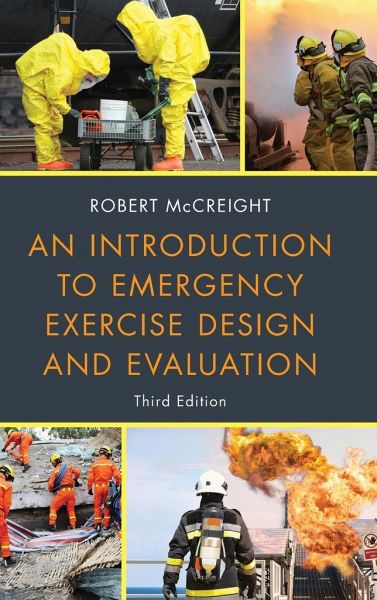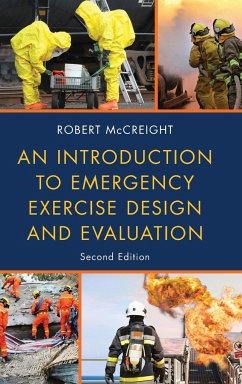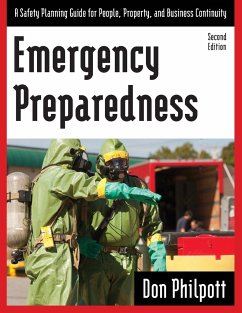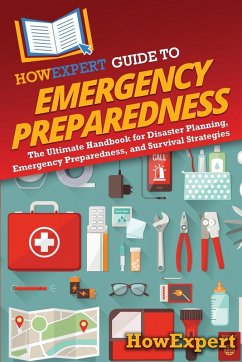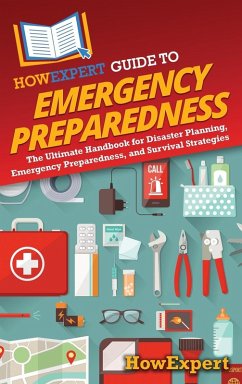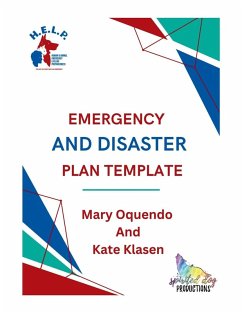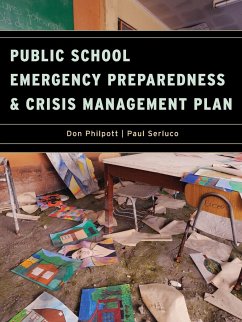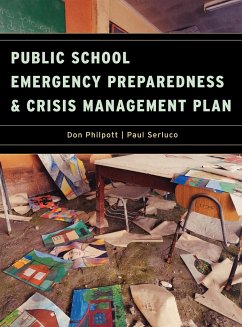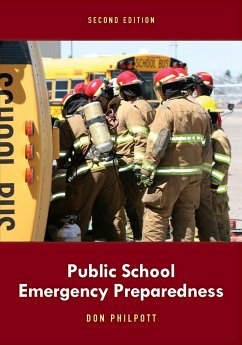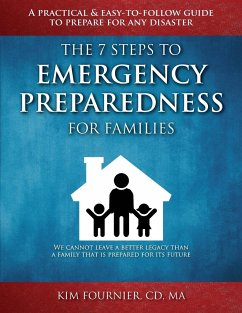Robert McCreight
Gebundenes Buch
Introduction to Emergency Exercise Design and Evaluation
Versandkostenfrei!
Versandfertig in 1-2 Wochen
Weitere Ausgaben:

PAYBACK Punkte
61 °P sammeln!




In this completely updated practical handbook, author Robert McCreight explains the essential elements and core principles of exercise design and evaluation. This updated version seeks to identify and outline the major issues, steps and strategy for devising emergency exercises and conducting coherent evaluations of those exercises.
After serving the United States government at the State Department and other federal agencies over a 35 year career, Dr. McCreight retired in 2004 and served as a consultant for major homeland security and national defense contractors. His professional career includes work as an intelligence analyst. treaty negotiator, arms control delegate to the UN, counter-terrorism advisor, political-military affairs analyst and Deputy Director of Global Scientific Exchanges at State Department. During his service at State Department he was a senior Soviet military analyst with INR and specialized in the assessment of nuclear, chemical and biological weapons programs. Later in his professional career he performed assignments where he either managed or coordinated international post-disaster relief and humanitarian operations, developed peacekeeping policy, promoted global science and technology cooperation projects and helped design treaty verification systems. At the middle of his career he also participated in the design and coordination of White House nuclear readiness command crisis exercises during the Reagan administration. During his federal career he designed, developed and coordinated well over 26 cabinet level strategic nuclear preparedness exercises, worked on Presidential Protection and Survivability Programs and directed the operation of several dozen senior-level military exercises involving theoretical force-on-force scenarios between the United States and the Soviet Union. This followed several years of designing and evaluating unit combat exercises for the U.S. Army. McCreight spent 27 years of combined active and reserve military service concurrently with his civilian work in U.S. Army Special Operations and has devoted 15 years to teaching graduate school as an adjunct at Georgetown, George Mason, George Washington, and Virginia Tech Universities in subjects as diverse as disaster and emergency management, strategic intelligence, nonproliferation policy, homeland security policies, terrorism analysis, intelligence analysis, scientific issues and defense policy and assessing WMD threats. He completed his doctoral degree in Public Administration in 1989 and remains active in graduate education programs in emergency and crisis management as well as security studies and terrorism analysis. He has also written and published over 29 articles on chemical weapons use, disaster management, disaster recovery, post-strike attribution, biological weapons threats to homeland security, crisis management, WMD scenario development and collegiate educational strategies for developing future crisis managers for government service. His first edition of this textbook-Emergency Exercise Design and Evaluation was published in 2011 and became a popular resource in both undergraduate and graduate schools. He has co-edited and authored a new textbook on Homeland Defense published by CRC Press in October 2014.
Produktdetails
- Verlag: Bernan Press
- Seitenzahl: 232
- Erscheinungstermin: 2. Mai 2019
- Englisch
- Abmessung: 235mm x 157mm x 18mm
- Gewicht: 533g
- ISBN-13: 9781641433907
- ISBN-10: 1641433906
- Artikelnr.: 56155151
Herstellerkennzeichnung
Libri GmbH
Europaallee 1
36244 Bad Hersfeld
gpsr@libri.de
Für dieses Produkt wurde noch keine Bewertung abgegeben. Wir würden uns sehr freuen, wenn du die erste Bewertung schreibst!
Eine Bewertung schreiben
Eine Bewertung schreiben
Andere Kunden interessierten sich für




